Following Macron's Election, Let's Make the EU a Great Democracy Again!
Adelina Marini, May 12, 2017
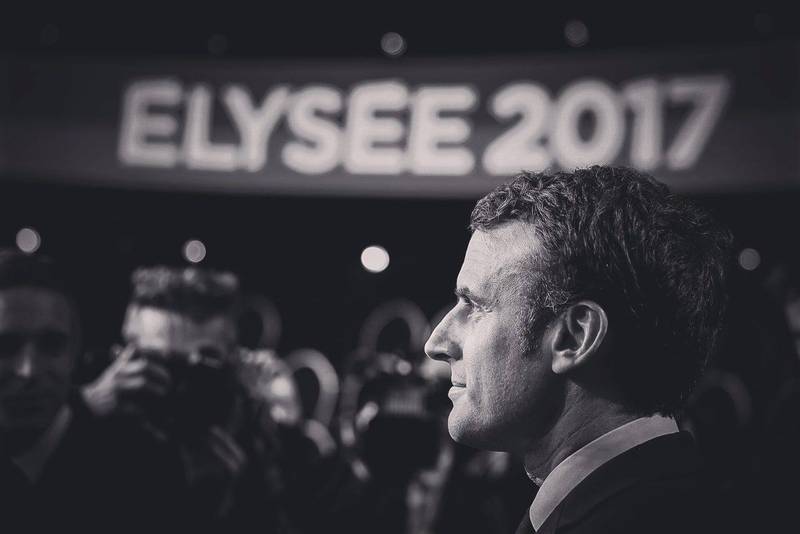
The collision that has been going on for several years in the developed liberal world is somewhat superficially presented as a struggle between mainstream political parties and populists. In the European context, that conflict is presented as a battle between pro-European forces and Eurosceptics. Thus described, the opposing parties are presented as if they are in the same plane, but they are not. If you take a deeper look, the fight is actually between liberal democracy and illiberal regimes (a mitigating phrase as well). As developments suggest, in countries where "populists" win we see a simple usurpation of power by people with authoritarian views, who use the opportunities of democracy to benefit. Some represent this as weaknesses of democracy, but democracy is in fact a system that can work well only in a society that is homogeneous in an intellectual-value aspect.
When "rebels" appear against the social contract, who generally have a low level of competence, disruptions emerge in the functioning of democracy, as scandals sell and sales are the bread and butter of the tabloid industry that lives on the threshold between our world and alternative reality. The most prominent representatives of the populists present themselves as anti-establishment players, i.e. politicians who describe the system as rotten and themselves as saviours. In this battle with “the corrupt system", they are slowly shutting down traditional media, destroying trust in institutions and starting to build alternative facts under the indifferent live-streaming look of social networks.
A game of populists
The European referendum in the UK is an event that is yet to be deeply studied in the coming decades by historians and experts, but the first impressions were that it was an explosion of democracy, regardless of the fact that much of the rationale supporting the Brexiteers' camp was alternative facts, meaning non-truths about the EU and its role in the domestic life of the UK. In this year's index on freedom of the press, the UK has gone down two places - from 38th to 40th. The concerns of Reporters without Borders - authors of the index - are that the government yields a firm hand regarding the press, quite often with the excuse that this is done for the sake of national security. According to the organisation, Parliament has adopted the most extreme surveillance legislation in British history, which does not offer enough safeguards for whistle-blowers, journalists and their sources.
Another concern of Reporters without Borders is the espionage bill, which could classify journalists as spies, for which they are bound to be jailed for up to 14 years. This is in addition to the non-transparent leadership style of Prime Minister Theresa May, who initially refused to give Parliament its rightful control over the UK's EU exit talks, but after the independent judicial system intervened (a mandatory attribute of the rule of law, ergo democratic states), Parliament now has a say. After surprising everyone in Europe with her decision to call snap elections, Ms May's office announced that she would not participate in TV debates and that her media coverage would be generally limited, which seriously limits the possibilities for exercising checks and balances by the public.
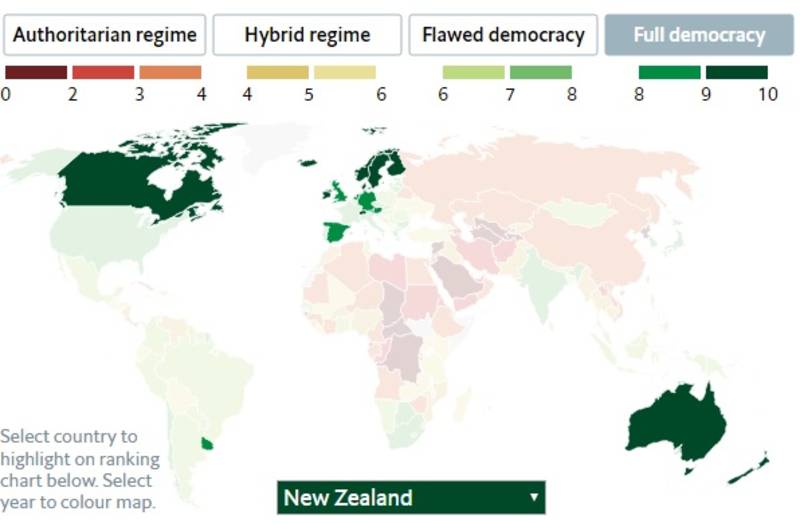
This happens at a time when more and more leaks appear that her government does not seem competent enough to deal with the historic task of bringing the UK out of the EU without incurring significant losses. The conservative prime minister's behaviour has increasingly started to resemble established dictators such as Vladimir Putin and Recep Tayyip Erdogan, for she more and more often offers conspiracy theories to justify her failures, again with the tabloids’ Faust-ian aid. For example, she stated that the whole of the EU opposes the UK in the negotiations, which sounds ridiculous, as if the EU is obliged to defend British interests instead of its own.
Despite these developments, according to The Economist Intelligence Unit (EIU) democracy index, Britain is a full-fledged democracy. This is not the case with the United States, however, which is already in the flawed democracies group. According to the EIU report for 2017, there is a decline in trust in the functioning of public institutions in the USA. The downfall of the United States into the group of flawed democracies in the company of Latin American and Eastern European countries is due to the election of Donald Trump as president. His actions so far indicate that, driven by his strong ego and perhaps not just that, he is revealing more and more totalitarian symptoms. Disregarding his inducements, it is a fact that he leads a fierce fight with respected media and generally with all who criticise him, including institutions that have so far been considered independent.
The most recent cause of concern about the health of US democracy is the surprise dismissal of Federal Bureau of Investigation boss James Comey, who was the leading investigator into a possible Russian intervention in the presidential election of last year and who played quite a key (if dubious) role in the elections - a role that proved to be beneficial to Donald Trump. Previously, he dismissed the incumbent Attorney General Sally Yates. She recently testified against the president regarding his former adviser, Mike Flynn, because of his ties to the Kremlin. Adding the unacceptable distribution of key functions in the presidential administration among members of Donald Trump's family, the United States is increasingly beginning to resemble an ordinary kleptocracy.
The situation in the United States is particularly worrying, as until recently the country played the role of a global democracy promoter and its guarantor. Nowadays, the full democracies of the world are at the brink of extinction. Those are Canada, the Scandinavian countries (Iceland, Norway, Sweden, Finland, Denmark), Ireland, Switzerland, Australia and New Zealand. Unfortunately, the situation in the EU is a rather motley one and generally worsening. In this year's report, the EIU points out that Western Europe marks the most significant decline in democracy after Eastern Europe. In 2016, most countries in the region recorded a decline in their results (9). Improvement was recorded in only 5, and in seven there was no change.
Not a single country has gone up to the highest category of "full democracy" in 2016, and France fell a category down last year and is already also in the flawed democracies group. Had Marine Le Pen won the presidential election, she would have probably gone into the direction of Mr Trump. Her attitude to the media is also hostile, which she did not skip demonstrating on election night as well, when some of the biggest media, including Politico Europe, were not accredited for the official press conference. In a sign of solidarity, major daily newspapers like Le Figaro and Le Monde also refused to report on the headquarters of the National Front.
Another similarity between Donald Trump and Marine Le Pen (and other populists as well) are sympathies, in the case of the National Front party and financial relationship, with the Kremlin. This in practise means sympathy for his illiberal regime. Marine Le Pen even demonstrated her warm ties with Vladimir Putin's regime. During the election campaign, before the first round, she went on an official visit to Moscow. Pictures of her handshake with Mr Putin toured world media, as well as social networks. The presidential elections in France did not go without Russian attempts at intervention just like in the US. On the day of reflection before the second round, the news of hacked emails in Emmanuel Macron's headquarters broke. Having learned the lessons from the United States, however, both media and the institutions 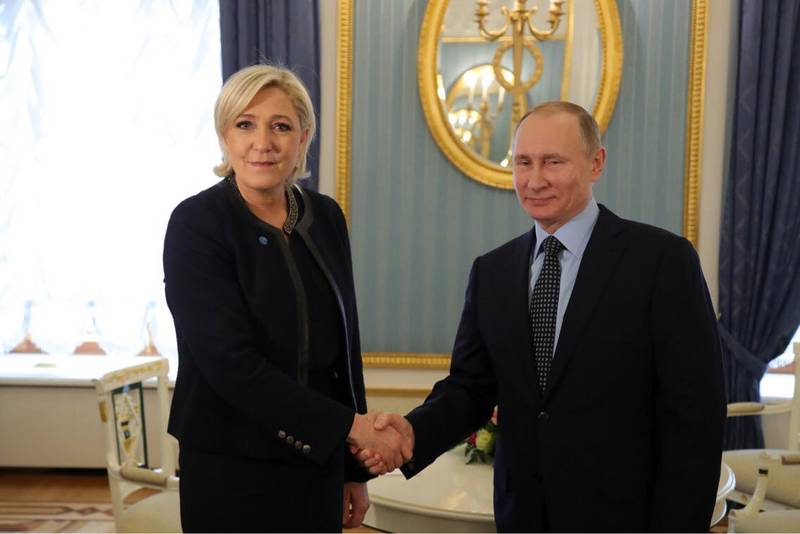 upheld the law of election silence on the day of reflection and did not flare up the scandal that could have influenced the election result.
upheld the law of election silence on the day of reflection and did not flare up the scandal that could have influenced the election result.
Experience has so far shown that in the old democracies, independent institutions have thicker roots and resist the pressure exerted by authoritarian leaders, brought to power through the finest tools of democracy but also of new technologies, where many things are not yet well regulated. However, younger democracies find it hard to resist the new wave of illiberalism that is flooding Europe. More and more EU countries show signs of dismantling the rule of law and democracy. The European Commission has been working on the mechanism for protection of the rule of law with Poland for a year and a half, no success so far. Hungary, which, due to the membership of Prime Minister Viktor Orbán's ruling Fidesz party in the largest European political party - EPP - has managed to escape sanctions so far, has now found itself under pressure by the Commission.
The EC and member states tolerated Orbán, even when he restricted media freedom and ruined the independence of key institutions for the rule of law, but their patience ended when the Hungarian prime minister raised his hand at the Central European University (CEI) using the already turned into a dictator template conspiracy theory, involving the American financier of Hungarian origin, George Soros. As a result, the EPP issued a warning to Viktor Orbán that his party could be thrown out of the EPP if he continued to violate fundamental freedoms and does not respect the rule of law. Orbán was warned by the EPP presidency also about the official state-sponsored "Stop Brussels" campaign.
Viktor Orbán committed to meeting the EC's recommendations, but the messages coming from Budapest show that this is unlikely to happen. Poland and Hungary are not the only ones. Bulgaria, which has never managed to build independent institutions, which then to break down, is constantly worsening, as the annual reports on the Cooperation and Verification Mechanism show, under which the country joined unprepared in 2007 in the company of Romania. Until the last parliamentary elections in Romania, it seemed as though the country was breaking away at high speed from the backwards orbit of Bulgaria, but the government of the Social Democrats in Bucharest showed that it does not uphold the rule of law and started to work against it.
The EIU report finds that Eastern Europe has been faring the worst in recent years. For 2016, this is the region where the largest number of countries show regression - 19. Just 3 countries show improvement, and in six there is no change. In the period 2006-2016, Eastern Europe marks the biggest downturn in democracy. No country in this region is in the group of full-fledged democracies, although 11 of them are in the EU. The situation in the countries of the enlargement process is even more severe, as democracy there has failed to even start. As the European Commission's progress reports show, as well as the developments of recent years, authoritarianism there is increasingly taking precedence over democratisation. Turkey has practically dropped out of the enlargement process after the EU announced it is no longer working on opening new negotiating chapters, and the Council of Europe has restored its permanent monitoring of the country, which is a sure sign that there is no democracy there.
The situation in Macedonia, despite attempts to be presented as an inter-ethnic conflict, or a conflict with a geopolitical dimension, is actually a result of the struggle to remain in power of the definitely illiberal party VMRO-DPMNE. For the time of its governance - more than a decade - the country has made a U-turn and has fallen to the bottom of the Freedom of the Press and Democracy indices. The situation in Montenegro is also severe, despite the country being about to become a full member of NATO. Actually, because of it. Serbia saw the return of inciting and military rhetoric, breeding hatred comes from the highest state level, relations with Kosovo and the whole region are strained, the fear of renewed armed conflicts in the area has returned. All of this is skilfully fuelled by close-to-government 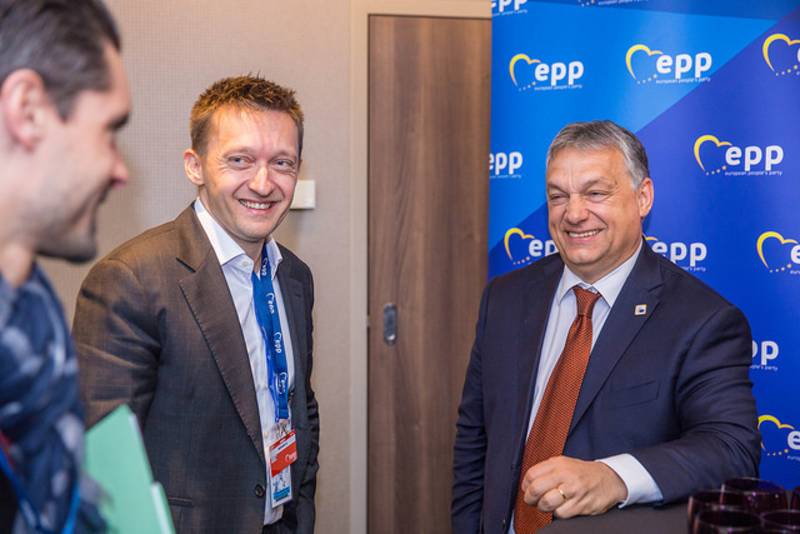 tabloids and military and "moral" Kremlin support. As a result, Bosnia and Herzegovina fell into dangerous instability.
tabloids and military and "moral" Kremlin support. As a result, Bosnia and Herzegovina fell into dangerous instability.
The EU's democratisation and European integration template has proved incapable of dealing with those countries where, among other things, there is an erosion of support among the population, even though the picture is not homogeneous. If the disturbances in democracy in the developed Western countries continue, it will certainly have a much stronger impact on the fragile democracies in the EU's neighbourhood.
Democracy strikes back
This makes the election of the liberal Emmanuel Macron extremely important. If he succeeds in consolidating his power after the parliamentary elections and in implementing the long-awaited reforms in the country, as well as strengthening the reformist spirit in the euro area and the entire EU, it will have a positive effect on the increasingly de-liberalising periphery. It was namely in France, where the first real attempts to resist the march of illiberalism in the very heart of European liberal democracy began to be seen. The fight against false news and disinformation, the more frequent decisions not to accredit Russian media in key state institutions, the withdrawal of European funding for illiberal Eurosceptic parties, the tightening of measures against election theft, are only part of the steps that developed democracies have embraced in order to protect themselves from the illiberal epidemic.
The strongest impetus for resistance will be pushed by democracies themselves if they can withstand the attacks of illiberals. The struggle in the United States is particularly fierce, but it is already being waged in the EU itself. A possible failure of Trump would bring the biggest victory, for it will show that democracy is vital and has mechanisms for self-preservation from the raids of wannabe-dictators. This is currently the biggest challenge for the Union. It must start working actively not only to stop falling in the EIU's democratic index, but also to push its members into the first league of full democracies. Economic recovery and the encouraging news in the labour market create a good environment for this battle to begin.
Somehow unnoticed, while everyone was staring at the French elections, a mass protest against the anti-democratic tendencies of the Polish government and its anti-European rhetoric took place in Warsaw on Saturday. About 90,000 people gathered in the centre of the Polish capital. The protest was organised by the largest opposition party, the Civic Platform, whose former leader is European Council President Donald Tusk (EPP). For the first time in many years, the Civic Platform is in the lead in the polls. There were also protests in Hungary against Viktor Orbán’s rule, but there is still no strong enough opposition there. Massive protests also took place in Serbia after the presidential elections this spring, which continue to this day under the motto "Against dictatorship". This is a sure signal that there is citizens' support for defending democracy. More than ever, they rely on the EU in the face of its institutions, political parties and member states.
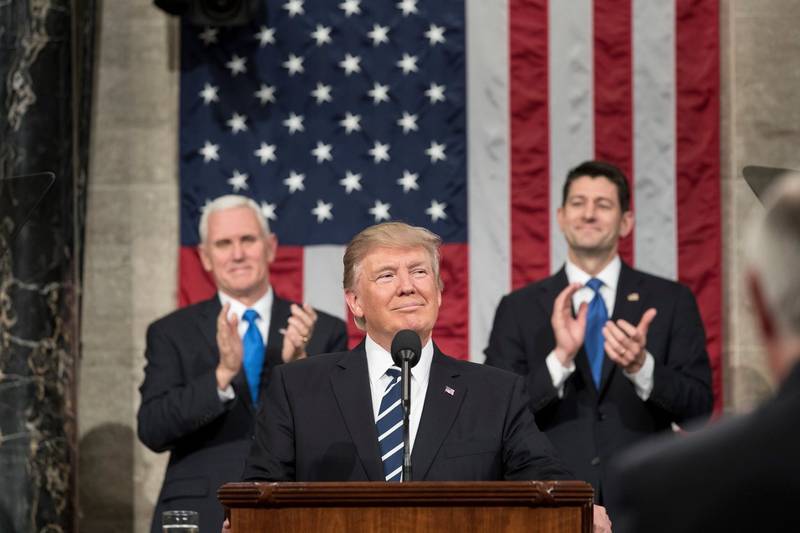 Should the EU fail to do its job in these countries, they will experience the same that happened to Bulgaria, whose people’s wrath against corruption and oligarchy happened in 2013, but because of the lack of European support or rather because of harmful European support for certain players, the protest died, and the country today is ruled by a dictatorship of the prosecutor's office, as they joke with sadness in Sofia. And while congratulations and greetings for the victory of the Liberal, pro-European Macron rained, the European institutions also congratulated the election of the third government of Boyko Borissov (EPP), in which coalition partners are illiberal pro-Russian parties, known for their xenophobic rhetoric, hate speech, and their rallies against refugees and Turkish citizens with Bulgarian passports along the border. Against the backdrop of the French elections, these congratulations seemed mutually exclusive. That is precisely how harmful party support can be to the EU's foundations.
Should the EU fail to do its job in these countries, they will experience the same that happened to Bulgaria, whose people’s wrath against corruption and oligarchy happened in 2013, but because of the lack of European support or rather because of harmful European support for certain players, the protest died, and the country today is ruled by a dictatorship of the prosecutor's office, as they joke with sadness in Sofia. And while congratulations and greetings for the victory of the Liberal, pro-European Macron rained, the European institutions also congratulated the election of the third government of Boyko Borissov (EPP), in which coalition partners are illiberal pro-Russian parties, known for their xenophobic rhetoric, hate speech, and their rallies against refugees and Turkish citizens with Bulgarian passports along the border. Against the backdrop of the French elections, these congratulations seemed mutually exclusive. That is precisely how harmful party support can be to the EU's foundations.
Today, more than ever, it is evident that democracy is not just a hollow slogan, a cliché that prettifies European treaties, but is a matter of social evolution and even of national security. Democracy and the rule of law are the strongest weapons against hostile, illiberal regimes that ruin the foundations of the European Union, thus threatening the very peace on the continent. In other words, it's the values, stupid!
Translated by Stanimir Stoev
 Federica Mogherini | © Council of the EU
Federica Mogherini | © Council of the EU | © Council of the EU
| © Council of the EU Luis De Guindos | © Council of the EU
Luis De Guindos | © Council of the EU